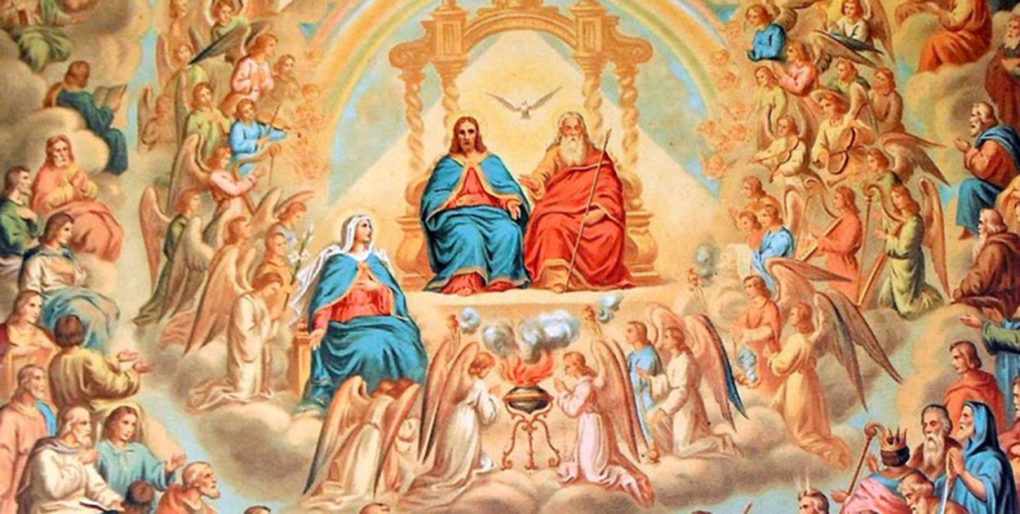“The Lord asks everything of us, and in return he offers us true life, the happiness for which we were created. He wants us to be saints and not to settle for a bland and mediocre existence” (Gaudete et Exsultate, 19 March 2018, 1). The emphatic teaching of Pope Francis that all are called to holiness in his recent Apostolic Exhortation and throughout his pontificate, is in total continuity with the thrust of the Second Vatican Council.
The recently canonized St Paul VI wrote that “this strong invitation to holiness could be regarded as the most characteristic element in the whole Magisterium of the Council, and so to say, its ultimate purpose” (Sanctitatis Clarior, 1969). Ultimately of course the teaching of the Council is but an echo of the Lord’s invitation addressed to all in the Sermon on the Mount: “You, therefore, must be perfect, as your heavenly Father is perfect” (Mt 5:48).
In this context Maolsheachlann Ó Ceallaigh’s work, Inspiration from the Saints. Stories from the Lives of Catholic Holy Men and Women (Angelico Press, New York 2018, 239 pages) is particularly timely. This well written presentation of a wide variety of holy women and men from a great variety of places, cultures and times serves to present the universal call to holiness in a very attractive way.
That saints were and are real people is borne out by the way the book is structured. The different chapters look at various saints through the prism of their humanity and normality. See for example the chapters on “Childhood”, “Marriage”, “Family” and “Mirth”. Striking too is the chapter entitled “Losers” which shows the paradox of holiness: the greatness of being little before God, the grandeur of humility, the superhuman strength of human weakness when it is open to divine grace. This chapter features such victorious “losers” as St Jean Vianney, St Thérèse of Lisieux, St Charles of Mount Argus and Blessed Solanus Casey.
The effectiveness of holiness as a supreme force for good in the Church and in the world is shown in such chapters as “Boldness”, “Catechetics”, “Evangelization” and “Prayer”.
Throughout the book the author shows himself ever mindful that each and all the baptized are called to holiness in and through their ordinary life.
St Josemaría Escrivá figures prominently among the saints depicted and the book echoes his teaching that the Lord “calls each and every one to holiness; he asks each and every one to love him: young and old, single and married, healthy and sick, learned and unlearned, no matter where they work, or where they are” (from the homily, “Towards Holiness”).
The book contains an interesting Appendix on the Servant of God, G.K. Chesterton, whose Cause opened in 2014. Here as elsewhere in the book the author reveals something of his own life and faith. In fact the author is the founder of the G.K. Chesterton Society of Ireland.
As a variegated presentation of holy men and women, this book is a mirror of the beauty of the Church. As the author notes: “The history of the Catholic Church is the greatest love story ever told. The saints were lovers, consumed by the love of Christ” (p. 231).
Always the Christocentric nature of holiness is underlined. After reading the book we can fully concur that “the lives of the saints are all about Christ”
(p. 10).
This book is indeed an “inspiration” since it introduces us, through an abundance of anecdotes to some of the personalities among that “great cloud of witnesses” who lovingly surround and support us as we “run with perseverance the race that is set before us, looking to Jesus, the pioneer and perfecter of our faith” (Hebrews 12:1-2).
About the Author: Rev. Donncha Ó hAodha
Rev. Donncha Ó hAodha is a priest of the Opus Dei Prelature, author of several CTS booklets and a regular contributor to Position Papers.

